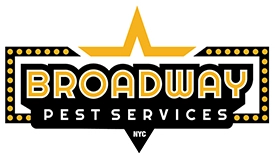How To Choose a Pest Control Company
The most important step is choosing the best pest control professional for the job. Things you might consider include licensing and qualifications, treatment methods, years of experience, customer reviews, and cost.
Below, we discuss each of these factors in more detail.
Does the company have a valid license and permits to perform pest control?
While the United States Environmental Protection Agency (EPA) sets the minimum standards of competency for pesticide application, licensing is taken care of at the state level. All pesticide applicators (and those who supervise them) in New Jersey must be licensed by all the necessary state regulatory agencies.
Is the company a member of any professional organizations?
Pest control companies can optionally obtain certifications from trade organizations like QualityPro. While not required, they can help you assess the quality of a company's products. For example, the GreenPro Service Certification indicates comprehensive and effective pest control methods that are safer for humans and the environment.
Pest control companies can also belong to certain professional organizations. When a company joins an organization like the National Pest Management Association(NPMA) (or a state-level organization), it gets access to resources, education, and a network of other pest professionals with whom to compare methods. This can give you additional peace of mind that a company is following industry best practices.
Professional Experience and Specialties
You can get some insight into a pest company's level of experience by seeing how many years it has been in business. The company's website and local reviews can also tell you whether a company has experience dealing with the specific species of pests that are afflicting your home. You can always reach out to a representative directly to learn this information if you can't find it online.
Reviews and Recommendations
You can view a company's rating on the Better Business Bureau (BBB), browse reviews on social media or local review sites, or check the standing of its license via the New Jersey licensing board.
Cost of Services and Guarantees
Things like your location, the size of your house, the type of pest being treated, and other factors can all affect the cost of pest control.
You can look into whether a company offers free on-site estimates (to determine if it fits in your budget), as well as what sort of guarantees it provides. Often, a company will guarantee that if it does not eliminate your pest problem, it will keep coming back until it does.
Safety and Treatment Methods
Safety is an important consideration when selecting a pest control professional, and you might prefer a provider who employs more natural, eco-friendly treatment plans.
Safety
You will want to understand the precautions around pesticides used around your house, for the sake of your family, your pets, and yourself. Your pest control provider should be able to supply information about the pesticides they plan to use, whether they are low toxicity or non-toxic, and (if not) what safety measures will be used. All pesticides (except minimum-risk ones) should be registered with the EPA.
Treatment Methods
It is now common for companies to begin with more environmentally friendly treatment methods before using pesticides, following a framework called Integrated Pest Management (IPM). When using IPM, the following steps are taken:
- Identify the source of the pest problem and assess whether immediate action is required.
- Decide on the safest course of action.
- Use a combination of physical, cultural, biological, and mechanical controls to manage the pest problem.
- Employ chemical controls only when required, and always in combination with other techniques for effective long-term pest management.
- Evaluate outcomes and provide additional pest control as needed.
















